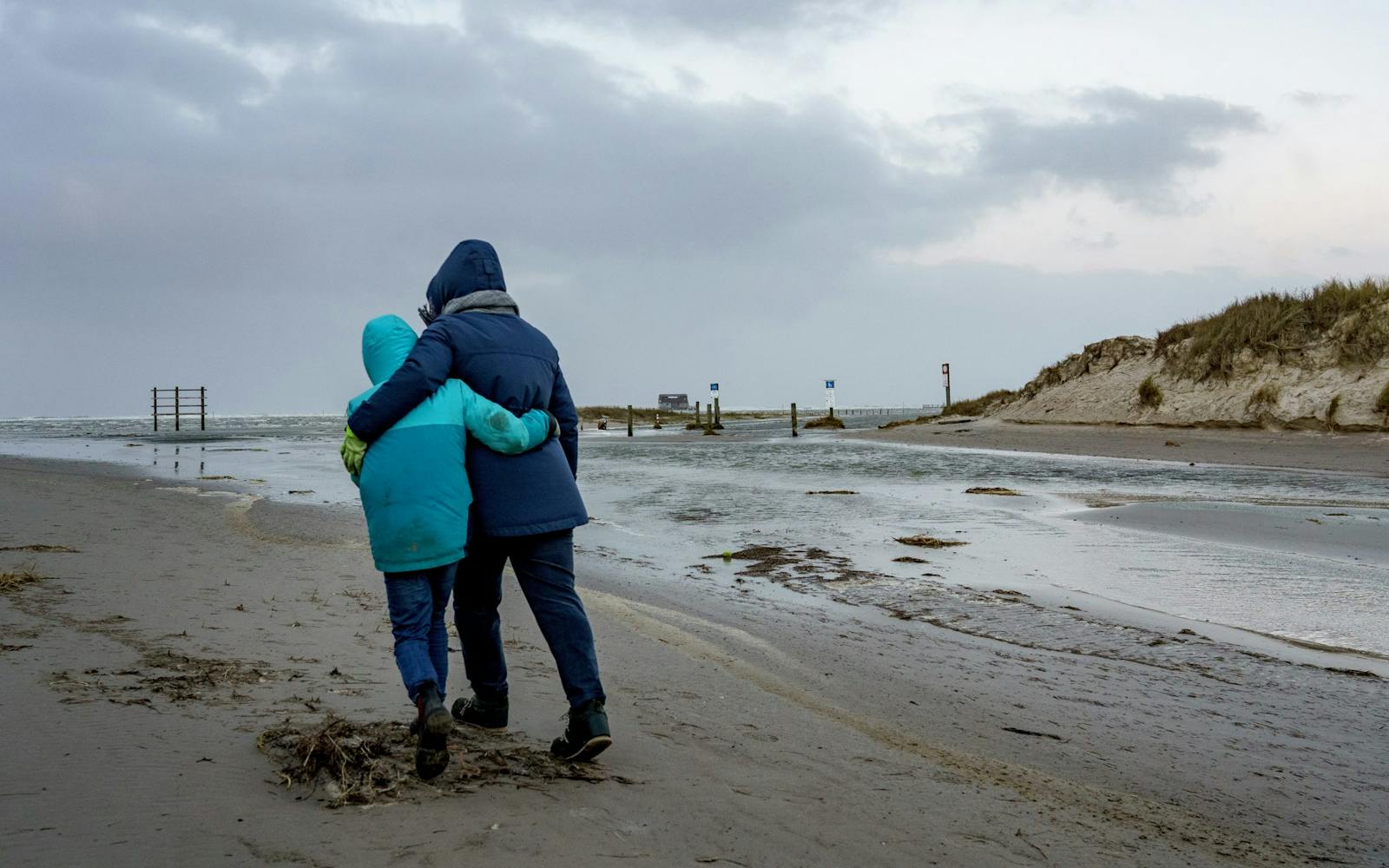Our health and well-being are inextricably linked to our natural environment. So much, in fact, that the World Health Organization has called climate change “the single biggest health threat facing humanity.”
And the latest science from the Intergovernmental Panel on Climate Change (IPCC) is clear: As our planet continues to warm, billions of people around the world will experience worsening physical and mental health impacts.
From disease spread to air pollution, poor nutrition, and mental health consequences, here are seven ways that climate change is adversely affecting our health:
1. Nine out of 10 people worldwide breathe unhealthy air caused by the burning of fossil fuels like oil, coal, and natural gas. Air pollution kills 13 people every minute whose causes of death include conditions like lung cancer, heart disease, and stroke.
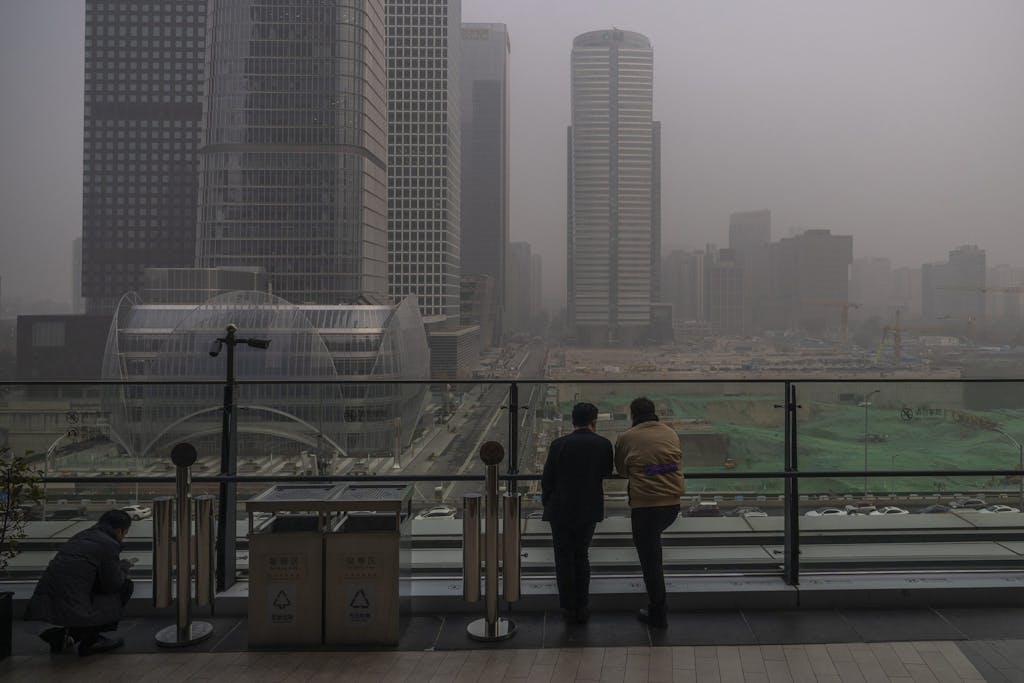
People look out at buildings during a highly polluted day on November 05, 2021 in Beijing, China. Photo: Andrea Verdelli/ Getty Images
2. Plastic waste is everywhere, from the depths of the ocean to the highest mountain peaks. Tiny plastic particles known as microplastics have contaminated our food chains, and according to a new study, they’ve entered our bloodstreams, too — the health ramifications of which are only just beginning to be understood.
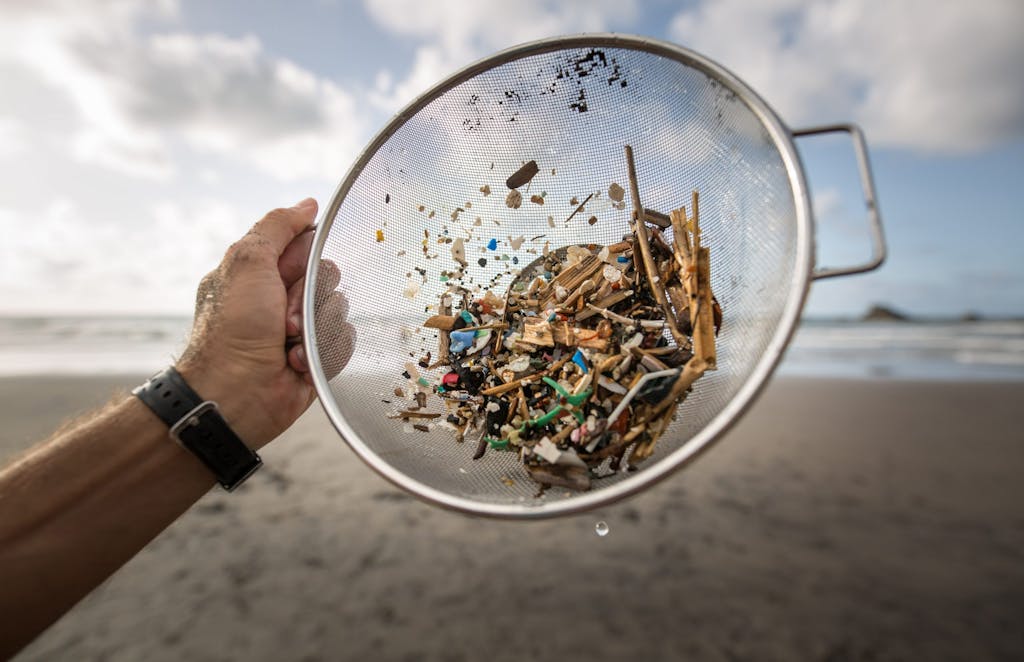
A volunteer of the NGO 'Canarias Libre de Plasticos' (Canary Islands free of plastics) carries out a collection of microplastics and mesoplastic debris to clean the Almaciga Beach, on the north coast of the Canary Island. Photo: Desiree Martin /AFP via Getty Images
3. As climate change increases the frequency and ferocity of extreme weather events like drought, it will have a heavy impact on global agriculture and food production. The result: rising rates of food insecurity and malnutrition.
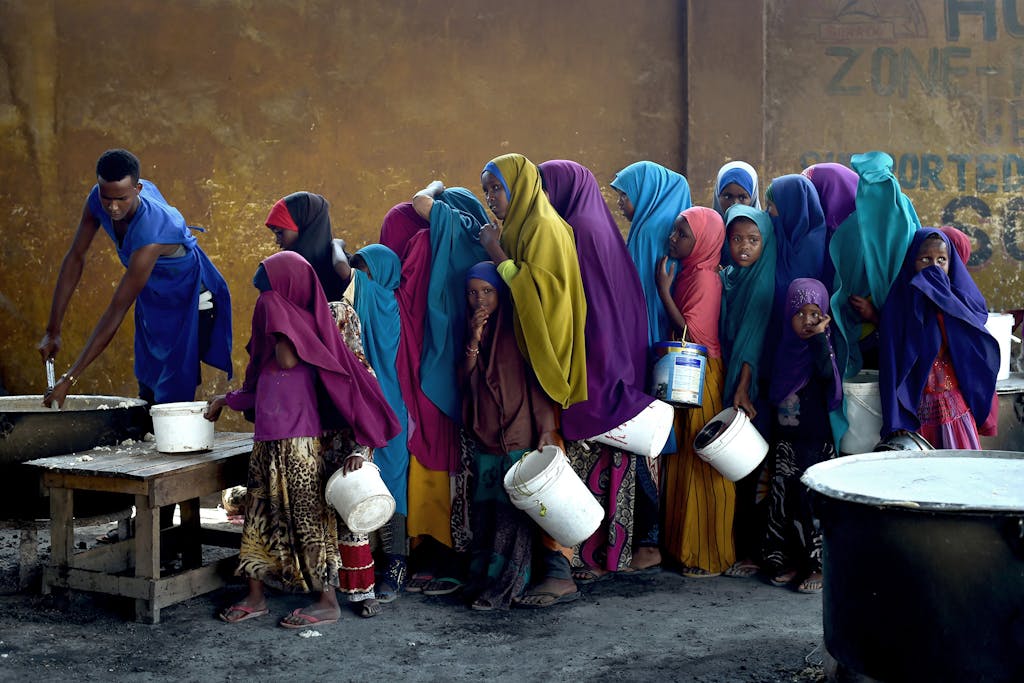
Young girls line up at a feeding centre in Mogadishu, Somalia. Photo: UN Photo/Tobin Jones
4. Climate change is compromising access to safe, clean drinking water, whether from drought-induced scarcity, contamination caused by severe storms and floods, or from rising seas making freshwater salty. Some 2 billion people currently lack access to safe drinking water, and 829,000 people die from diarrheal diseases every year due to polluted water and poor sanitation.
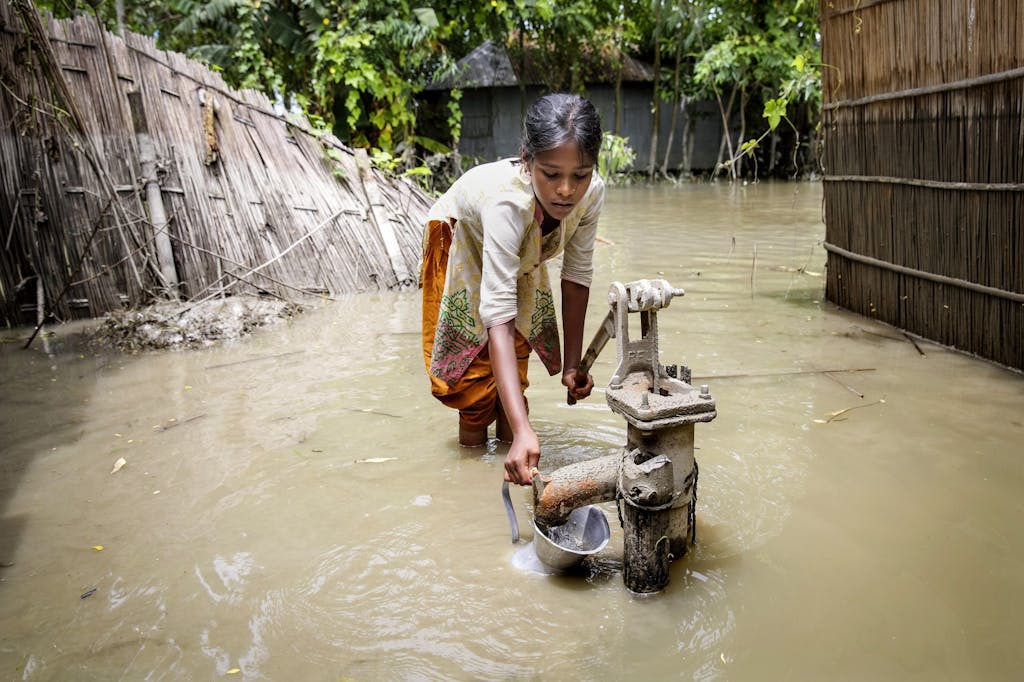
During the floods in Kurigram, northern Bangladesh, a girl tries to pump clean water from a standpipe. The contamination of drinking water supplies is a major risk during flooding. Photo: GMB Akash/ UNICEF
5. Some 600 million trees are chopped down every year to produce 6 trillion cigarettes; tobacco kills more than 8 million people every year. Plus, the destruction of natural habitats and loss of biodiversity are known to increase disease spread between animals and humans.
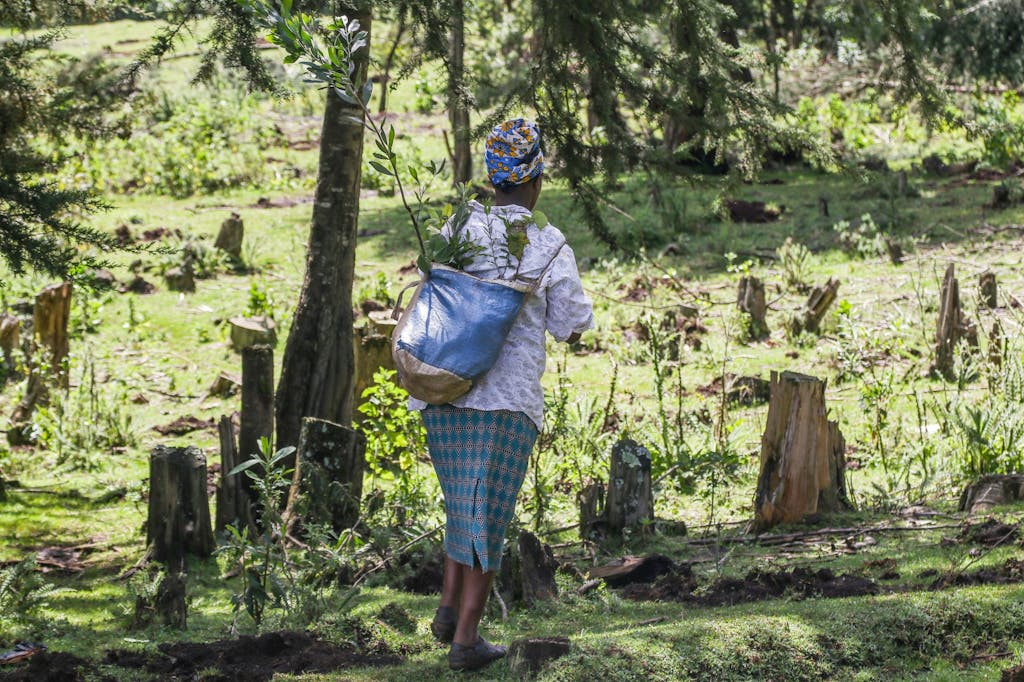
A woman carries tree seedlings in a bag on her back which were to be planted at a deforested area inside Mau Forest in Kenya. Photo: James Wakibia/SOPA Images/LightRocket via Getty Images
6. As temperatures rise, mosquitoes are spreading diseases farther than ever before. If climate change continues unabated, an additional 4.7 billion people could be at risk of mosquito-borne diseases like malaria and dengue fever by 2070.
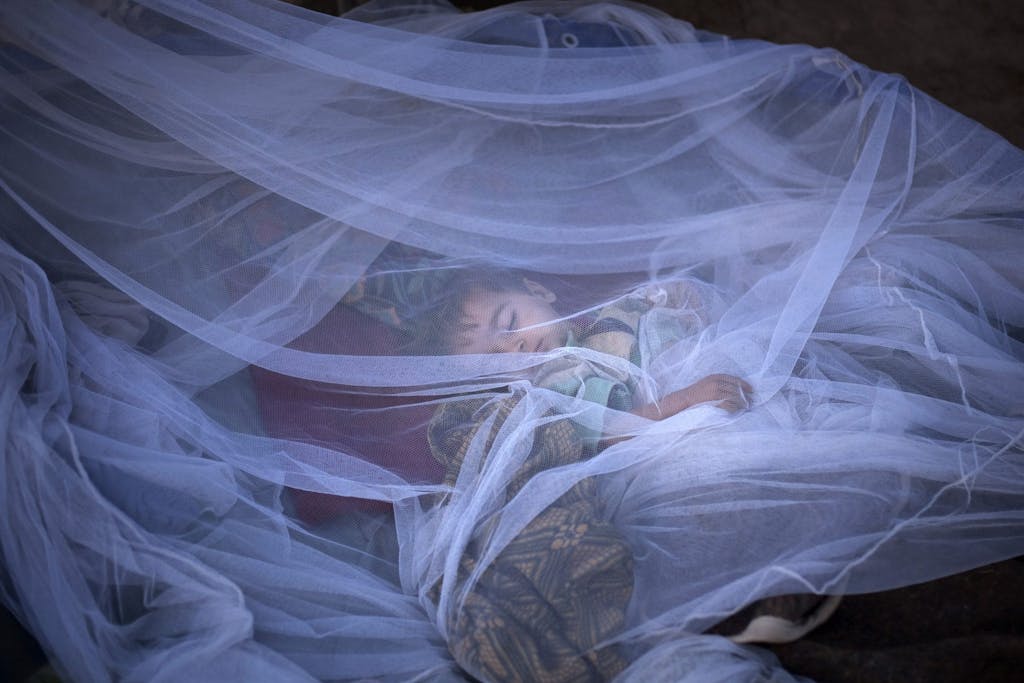
A displaced boy sleeps under a mosquito net in Jalozai Camp in Nowshera District in North-West Frontier Province, Pakistan. Photo: Marta Romaneda/ UNICEF
7. Climate change also has an impact on our mental health: The IPCC found that the trauma of extreme climate events is affecting the mental health of people around the world. As weather becomes more severe, anxiety and stress are projected to increase, especially for children, adolescents, and the elderly.
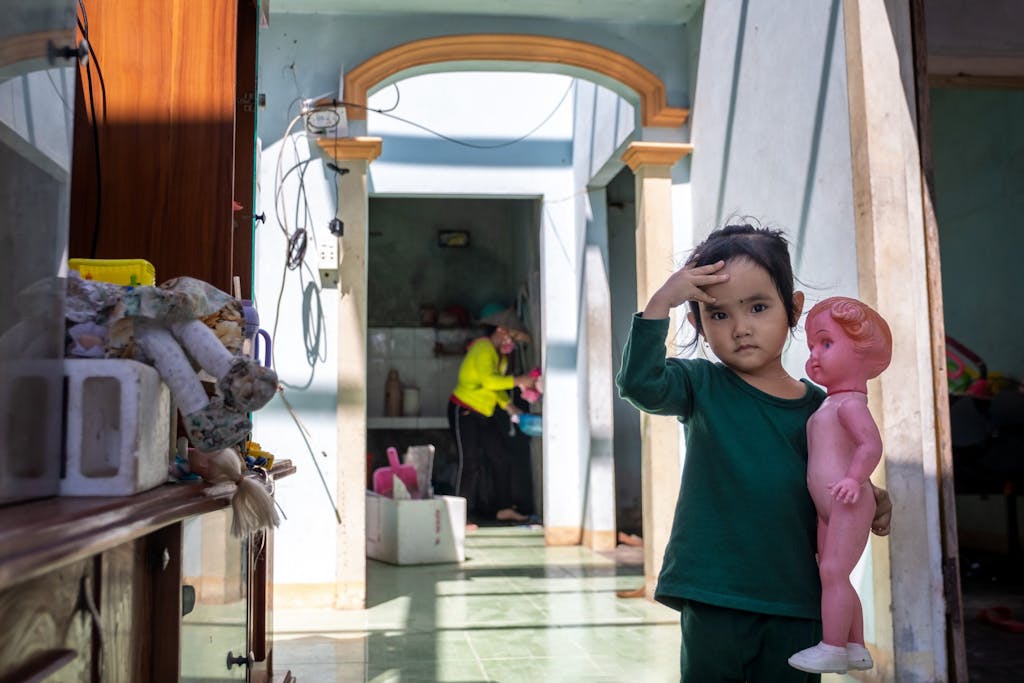
Nguyen Huynh Thuy Tien, 3, plays inside her house whose roof was blown up by the Typhoon Molave in Tam Tien Commune, Nui Thanh District, Quang Nam Province, Vietnam. Photo: Linh Pham/ UNICEF/AFP-Ser
How to address the impact of climate change on our health
The good news is that there are solutions to the climate challenges we face, which in turn could unlock vast health benefits for people around the world. Rapidly curbing greenhouse gas emissions can keep global temperature rise in check and help prevent some of the most severe climate impacts. And doing so will help offset health risks, too, such as those associated with air pollution, food scarcity, disease spread, and mental health impacts. If we collectively take proactive measures to protect nature, limit plastic pollution, and invest in climate-smart agriculture and clean energy, it will benefit the health of our planet and its people.



